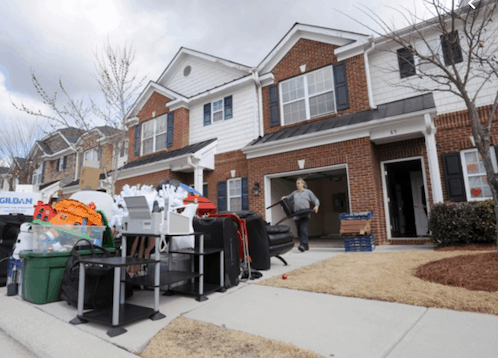Can You Empty a House Before Probate? Generally No, But there are Limited Exceptions

When asking can you empty a house before probate, the answer is generally no. Probate is a legal procedure of the court to determine whether a will, if there is any, is genuine, and to appoint the executor, or if there is no will, the administrator to administer the estate of the decedent. Before the executor or administrator is appointed, no person can administer the assets of the decedent, including the personal property that can be found in the decedent’s house. The executor or administrator, once appointed, can direct the distributees or beneficiaries to sort the decedent’s belongings, to get any property that has been specifically devised to them, and to list the inventory of the decedent’s remaining personal property.
Exceptions. When you can empty a house before probate.
There are exceptions when a person can empty the decedent’s house immediately upon death. These instances refer to cases where the house does not need to go through probate because it passes immediately to another person by virtue of the property ownership, such as properties under living trust, joint ownership, tenancy by the entirety, community property, ladybird deed, or transfer-on-death deed. These properties are called non-probate assets.
Trust Property
Trust properties, if not established through a testamentary trust or trust created under the will, do not go through probate. Transfers are already made by the deceased grantor during his lifetime to the trustee (even if the trustee and beneficiary is the deceased grantor himself). Upon the deceased grantor’s death, the trustee, in accordance with the terms of the trust, can immediately transfer the property to the successor beneficiary. Because the trust property is considered a non-probate asset, its administration is subject to the terms of the trust and not the probate court.
Joint Ownership
Joint ownership with right of survivorship, tenancy by the entirety, and community property ownership are all similar types of ownership where two people own an undivided interest over the property. The main difference of joint ownership with the right of survivorship and tenancy by the entirety or community property is that in the former, the co-owners are not married while in tenancy by the entirety and community property, the co-owners must be married. In this type of property ownership, upon a co-owner’s death, property immediately transfers to the surviving co-owner by virtue of the property owner stated in the deed. Because this type of property is a non-probate asset, it is not subject to the probate court’s jurisdiction, and therefore, does not need any action from the probate court before the house can be emptied.
Transfer-on-Death Deed
The transfer-on-death deed and ladybird deed are similar, where the grantor revocably transfers the house to a third party (the remainderman) upon death but retains the right to reside, use, and enjoy the fruits of the property during the grantor’s lifetime. The deed, itself, allows the remainderman to immediately take possession of the property upon death without probate. For this reason, as a non-probate asset, the remainderman can immediately empty the house even without probate, after the proper recording of the Affidavit of Death of the grantor.
Can you live in the house before probate?
Practically speaking, if the person has been living in the house before the decedent’s death, the person can continue living in the house before probate. Only when an executor or administrator is appointed can such executor or administrator demand the person to vacate the house, or otherwise, face eviction. During this period, nothing stops the person residing in the house to empty the house before probate. If anything valuable was taken and this can be proven, the executor or administrator, once appointed, may have a cause of action against this person.
If you are a named executor in the will or an heir who has suffered the death of a relative and you need assistance in any probate matter, we at the Law Offices of Albert Goodwin, are here for you to help with issues such as can you empty a house before probate. You can call us at 212-233-1233 or send us an email at [email protected].
